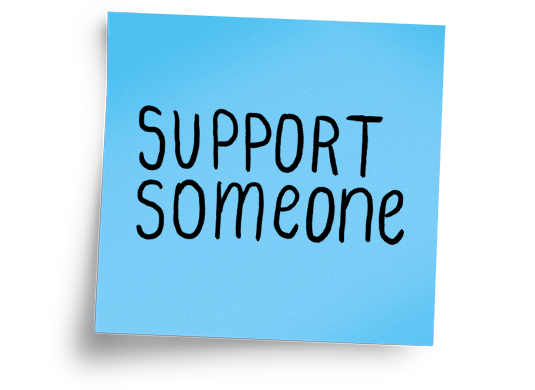
Understanding Mental Health
Addressing mental health challenges is vital to recovery and improving overall our well-being. Across the state, mental health professionals are trained to identify warning signs and provide early intervention and treatment to help you live a fulfilling life.
Do you need support or more information? Find where to start with our mental health quiz.

Stop the Stigma
Be open. Be respectful.
Be supportive.
Mental health challenges aren’t a sign of weakness or failure. No one should be ashamed of talking about it, especially with their loved ones.
Stopping mental health stigma starts with recognizing the bias, prejudice and misperceptions we carry, and it continues with encouraging open, nonjudgmental conversations.
Signs & Symptoms to Look For
Though every situation and person is unique, a diagnosable mental health disorder may be categorized into several different types, including anxiety disorders, bipolar disorder, depressive disorder, eating disorders, post-traumatic stress injury and more.
There is no single cause for mental health disorders, and they affect everyone differently. The specific symptoms and severity can vary. However, there are warning signs.
Serious symptoms like these should be a concern:
- Loss of interest or withdrawing from activities
- Isolating from friends and family
- Extreme mood swings or changes in mood
- Excessive fears, worries or persistent sadness
- Changes in weight, eating habits or sleeping patterns
- Changes in school or work performance
- Turning to substance use
How to Start the Conversation

Mental health disorders are common. The truth is, we’re all connected, and each of us may carry invisible burdens. In this shared experience, there is community, empathy and hope.
That’s why the first step to getting help is often a safe, open-minded conversation. Small actions can have a big impact on someone’s journey. If you’re concerned about a child, friend, family member or anyone else in your life, we’re here to help you start the conversation.

Step 1:
Ask
Show your support by making someone feel seen, heard and cared for. Reach out, ask if they’re okay, and let them know you’re here. You can start the conversation by saying things like:
- How are you?
- What’s on your mind?
- You don’t seem like yourself.
- Everything ok?
- I care about you, and I’m here to listen.
- Can we spend some time together?
- I’m grateful to have you in my life.

Step 2:
Listen
Listen non-judgmentally to show you care and offer support. Spend quality, uninterrupted time with them, and let them talk.

Step 3:
Connect
If someone is thinking about suicide, keep them safe. Be there physically or by phone. Connect them with professional support like the 988 Lifeline and offer help in ways you're able to (driving them to appointments, calling 988 together, etc.).

Step 4:
Follow Up
Ongoing, consistent support matters. Take weekly walks. Send notes, reminders and check ins. Stay in regular contact and have a plan in place if you can’t reach them.
Find Mental Health Treatment

Mental Health
Treatment
Find mental health treatment services near you.

Suicide
Prevention
Call, text or chat 988 if you or someone you know is having suicidal thoughts.

Maintaining Mental Wellness
Learn best practices to care for your mental health.
